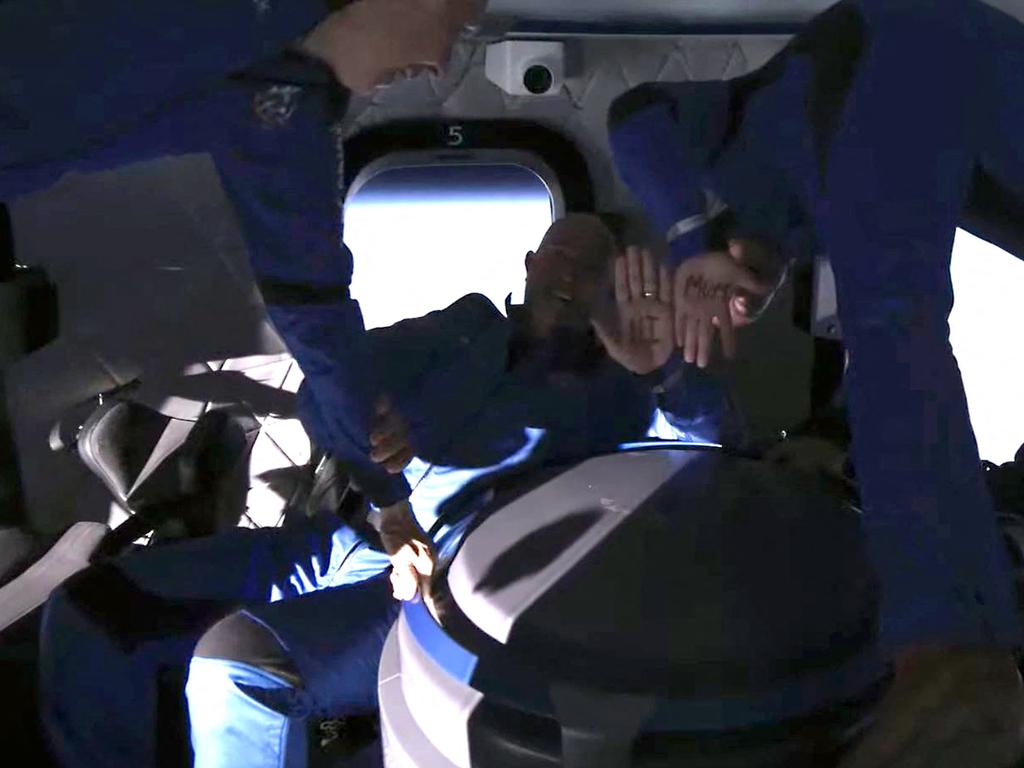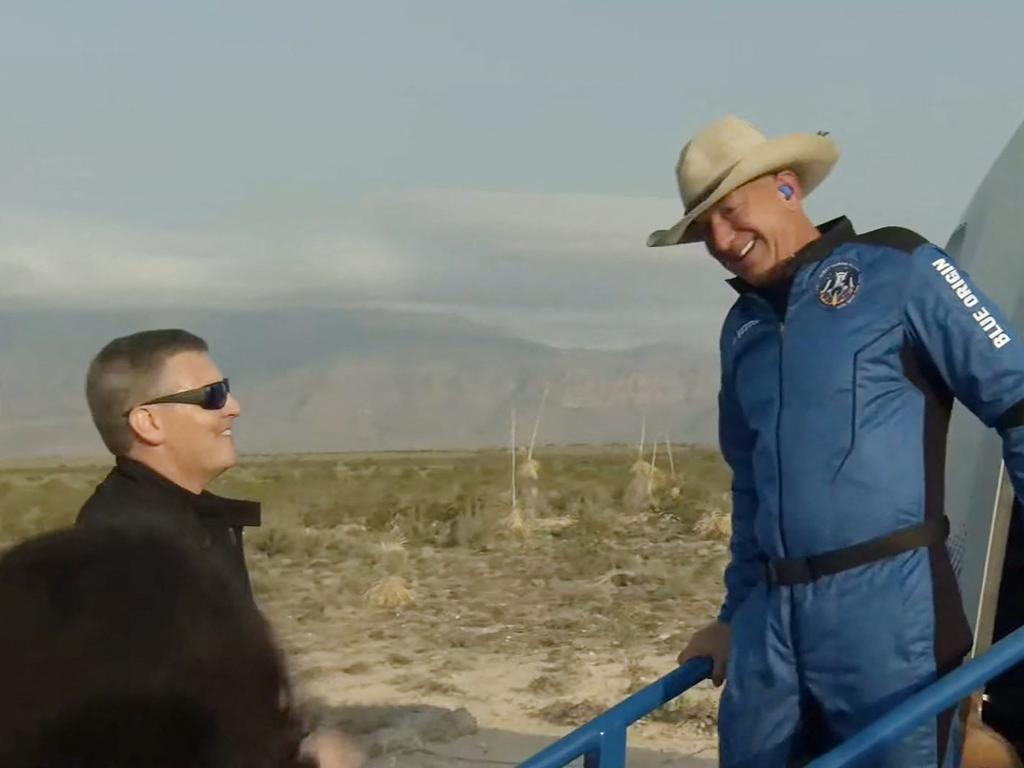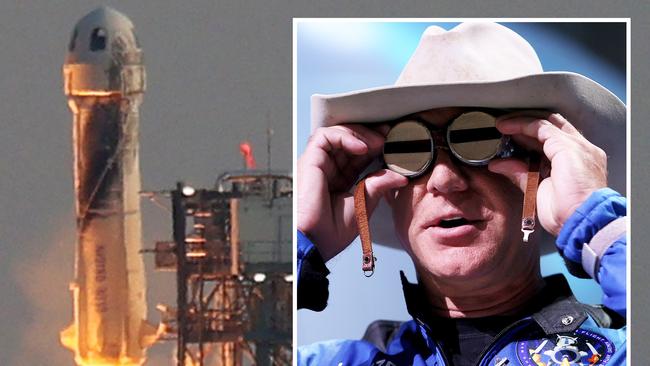
It was, perhaps above all else, the shape of the thing that most obviously invited the obloquy. If you’re a self-made billionaire, a buffed-up master of the universe, a testosterone-oozing tech tycoon, and you strap yourself into the, well, the glans of a rocket that looks more obviously like a phallus than even all the phallus-shaped rockets that have propelled men (and the occasional woman) into space for decades, you are, in this age of MeToo egalitarianism and mandatory ungendering, asking for trouble.
Even so, the torrent of ridicule and bile that greeted Jeff Bezos’s brief jaunt to the edge of space this week was truly cosmic. Besides the inevitable jibes about the tumescent form of his Blue Origin rocket, Bezos, along with his space-competitor fellow billionaires, Sir Richard Branson and Elon Musk, was variously denounced for epic vanity, wasteful greed and environmental pillage.
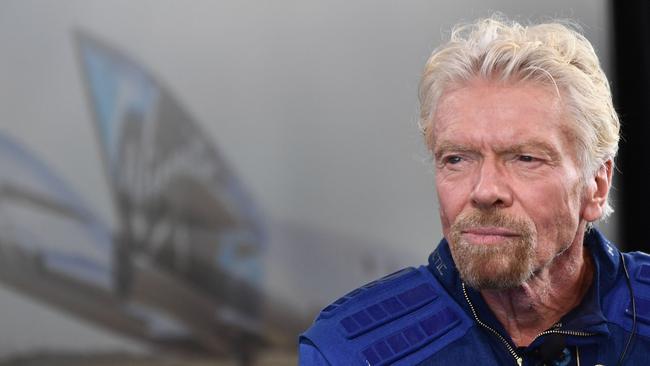
The truth is Bezos could have been borne aloft in a machine shaped like a crocheted pink vagina hat and it wouldn’t have saved him from the opprobrium of the progressive left. His trillion-dollar Amazon Inc has long been a particular target of their ire for its aggressively efficient labour practices and its globally dextrous fiscal accounting and Democrats were quick to express their contempt for the founder’s ten-minute joyride.
“Let us celebrate when we eradicate poverty, provide healthcare for all, abolish homelessness, combat climate change,” said Bernie Sanders, the left-wing senator. It seems we will be waiting a while for Sanders’s permission to celebrate but plenty of those with less utopian aspirations were equally eager to rain on the parade. Matthew Miller, a former official of the Obama administration, seemed to capture the widespread belief on the left that the state is the only legitimate vehicle of human progress. “Watching Nasa takeoffs when I was a kid was such a moment of national pride and unity. Having them replaced by billionaire vanity flights is one of the more depressing touchstones of this era,” he tweeted.
There’s nothing especially new about suspicion of rich men pursuing expensive dreams, nor about cynical scepticism of the uncertain value of aspirational innovation and exploration. The Wright brothers were dismissed by many at the time as self-promoting entrepreneurs who oversold their dubious achievements. Thomas Edison was a master media manipulator who cleverly exploited existing science to exaggerate his own role in technological discovery.
It often takes the perspective of hindsight to appreciate the genuine significance of advances that seem merely incremental at the time, and there are good reasons to believe that the Bezos-Branson-Musk competition will yield benefits that will well outlast the inevitable negativity of the progressive chorus.
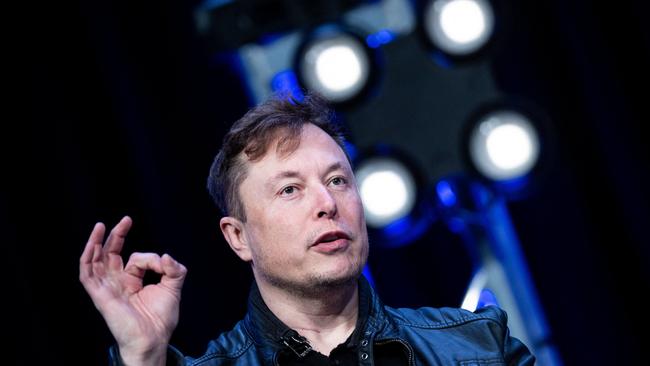
There’s an awful lot not to like about Bezos. His company is an internet behemoth that uses its unrivalled data capabilities to crush competition and competitive innovation. It has efficiently homogenised the retail experience in a way that has driven small, local businesses into extinction all over the world. It does indeed extract value from its employees in ways that are at odds with its founder’s grandiose claims about inclusion and shared prosperity.
It would be absurd, however, to deny the extraordinary utility of the company he built, far beyond retail. It is equally absurd to ignore the value and opportunity that Amazon has brought for millions of workers in an age of employment uncertainty. By pursuing profit for its shareholders the company creates more jobs in a week than a socialist politician has achieved in a lifetime.
What’s more, his latest venture is not some quixotic, bucket-list jaunt for a man with no more thrills left to find on Earth. Dismissing his competition with Branson and Musk as an exercise in comparing rocket sizes is to miss spectacularly the potential that awaits us in space. It demands a failure of imagination on a scale of the infinity of the universe to think there’s nothing of large significance to be gained by venturing beyond the atmosphere.
The immediate commercial opportunity for Blue Origin may reinforce suspicions that this is merely a ticket-to-space trip of a lifetime for the wealthy. Bezos says he has already sold nearly dollars 100 million in such tourist fares, and his proposal to extend Amazon delivery schedules to the moon doesn’t look especially earth-shattering.
But the larger potential is vast, and pooh-poohing Bezos’s efforts on the grounds that the immediately visible benefits are small is like criticising John Logie Baird for inventing television at a time when there was nothing on worth watching.
Some goals are immediately identifiable - and urgent. In the last decade China has aggressively developed extraterrestrial capabilities in ways that alarm western defence experts. A report by the US Defense Intelligence Agency in 2019 said the Chinese have been rapidly developing anti-satellite technology. It should not be hard to envisage what might become of the security of our GPS and other satellite-delivered technology if we cede space to Beijing.
There are also likely to be opportunities for climate change mitigation. Bezos may have been exaggerating when on his return this week he waxed lyrical about a future in which heavy industry has been relocated to the skies, but it’s not a pipedream to think that extra-planetary exploration may prove a way to protect this planet.
The point about the new age of space entrepreneurs is that throughout history capitalists with ambitions have achieved far more for human progress than the mandates of government. It’s not science fiction to think that the rockets of today’s rich men will be, as it were, a good harbinger of the shape of things to come.
The Times


